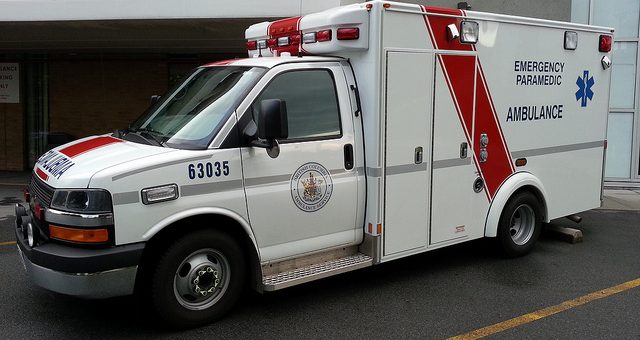Issues & Community Blog - Andrew Weaver: A Climate for Hope - Page 98
Responding to the B.C. Budget
Weaver Responds to B.C. Budget
For immediate release
February 21st, 2017
VICTORIA B.C. – “This budget represents a cynical ploy by handing out financial goodies a few months before an election,” says Andrew Weaver, Leader of the B.C. Green Party. “It pretends to tackle issues that should have been dealt with years ago. It is politicking with public interests.
“Two years ago, I brought forward a progressive way to eliminate MSP premiums through income taxes, but the government did not act. I brought it up again the next year, and the government made a few minor changes. Now they are making a substantial reduction in MSP premiums for some British Columbians – on the eve of an election.
“This is political opportunism, pure and simple. Although the financial break is an improvement for many British Columbians, the 2017 budget clearly demonstrates that the B.C. Liberals govern by political calculation, not by what is right for the people of B.C.
“This government’s manipulation of voters’ hopes and needs is an insult to the very real anxieties British Columbians face. The B.C. Green Party will put people at the heart of our decision making. We are ready to replace Christy Clark’s contriving government with principled leadership this May.”
Additional quotes on specific sections of the B.C. Budget continued below.
– 30 –
Media contact
Mat Wright, Press Secretary
+1 250-216-3382 | mat.wright@leg.bc.ca
Additional Quotes from Andrew Weaver
“The mindset that is used across the board with this government is ‘many of you are struggling because of our policies, we’ll help a select few of you.’ Rather than addressing the root issues, they are choosing who is worthy of support, based on their ideology. They are picking winners and losers, in our communities and in business:
Affordability
“How can the government afford all these selective investments? The answer is, of course, on the backs of British Columbians. The B.C. Liberals stood by and watched the affordability of B.C. get dragged to an international extreme, to the extent that many can no longer afford to live in the communities they were born and raised in.
“This budget includes 2,000 additional units of affordable housing, which is a start, but this government has dragged tens of thousands of citizens into an affordability crisis.
“This budget provides no relief for low-income renters. Rental assistance programs are simply being maintained at current levels, which is completely inadequate in the face of the out of control rental market. Those struggling to pay rent and seniors struggling to stay in their homes as they age find no help in this budget.
“Now, instead of helping those most in need, the B.C. Liberals are catering to their friends at the top and the demographics they think will vote for them.”
Medical Services Plan Premiums
“The reduction in MSP premiums is a welcome change for many, particularly those with moderate incomes, for whom the premiums are a significant drain.
“However, MSP remains a flat tax, with someone making $42,001 per year paying the same premiums as someone making $120,000.
“Moreover, this government made no commitment and provided no timeline for how they will eliminate MSP premiums entirely.”
Poverty reduction
“Refusing, for the 10th year in a row, to increase social assistance rates is an unconscionable decision. This government is boasting about posting surpluses, yet we have the third highest poverty rate in the country, and this government has refused to increase social assistance rates for the past 10 years. People surviving on social assistance today receive only $610 per month, the same rate since 2007. They rely on food banks to eat.
“The prevailing ideology of this government is that jobs are the only pathway to dignity, and that people on social assistance are simply choosing not to work, and therefore do not deserve adequate support, nor do their children deserve adequate support. ”
Seniors
“This budget is noticeably silent on funding for seniors care.”
Energy
“The B.C. Liberals are still banking on an LNG future for the province, with no mention of wind, solar, geothermal, tidal, or renewable resource development. In fact, the only mention of clean energy in the budget document is made in reference to the ‘Site C Clean Energy project.’
“Eliminating PST for commercial customers strikes me as a transparent giveaway to try to incentivize a non-existent LNG industry and rationalize the construction of Site C dam.”
Environment
“The budget items on ‘environmental protection’ would be laughable if they weren’t so devastating for the environment in our province.
“The B.C. government’s selective protection of wildlife is a disaster. They’ve let the biodiversity of our province become more endangered than anywhere else in the country and destroyed habitats to the point of local extinction. We have more at risk species than any other province – but this government singles out caribou – and only caribou – for protection. Caribou recovery is, of course, a praiseworthy initiative, but these populations are in crisis because the government permitted the destruction of their critical habitat in the first place.
“In this budget we get more money for park rangers and campsites. While welcome investments, they have more to do with people than the environment. The 1,900 new campsites will be built into existing parks, replacing wild habitats. There will be no additional funding in the next three years for the Conservation Officer Service or the environmental protection, sustainability, or enhancement initiatives.
“That this government would consider $5 million for the SPCA as a commitment to environmental protection is an outrageous testament to the utter disregard this government holds for the environment. The SPCA does laudable work protecting the welfare of domestic and farm animals, but it is transparently not in the business of environmental protection.”
Transportation
“Regarding clean transportation, they’ve neglected innovation in favour of merely re-announcing an old program.
“Instead of actively supporting the expansion of clean transportation, this government is merely providing static funding for an existing program, premised on an assumption of no increase in demand.”
Introducing a petition to ban inhumane cage confinement in the egg industry
 Today in the legislature I introduced Ned Taylor (photographed to the right with my colleague Vicki Huntington) who started a petition to ban battery cages in British Columbia. Ned Taylor was joined by his father Matt Taylor and by a friend Jordan Reichhart. I subsequently tabled his petition in the legislature.
Today in the legislature I introduced Ned Taylor (photographed to the right with my colleague Vicki Huntington) who started a petition to ban battery cages in British Columbia. Ned Taylor was joined by his father Matt Taylor and by a friend Jordan Reichhart. I subsequently tabled his petition in the legislature.
As I mentioned in my introduction, there is only one step of separation in Victoria! Ned’s sister and my daughter went to elementary school together and his father’s sister and I both graduated from Oak Bay Secondary School in 1979!
Below I reproduce the text and video of both the guest and petition introductions.
Video of Guest Introduction
Text of Guest Introduction
A. Weaver: It gives me great pleasure to introduce three guests today, two of whom are constituents. The first is Ned Taylor — he’s a Reynold’s Secondary School student and the author of a petition I’ll be introducing momentarily — along with father, Matt Taylor, and his friend Jordan Reichhart.
I might say for those of you who are from Victoria, you will know there is no such thing of two steps of separation from people. There is only one. It turns out Ned’s sister was in grade one and kindergarten with my daughter and that his father’s sister went to high school with me and graduated in 1979 from Oak Bay.
Would the House please make them feel very welcome.
Video of Petition Introduction
Text of Petition Introduction
A. Weaver: I’m very pleased to stand to present a petition against the use of inhumane cage confinement in the egg industry. This petition, which has over 33,000 signatures, was started and organized by Ned Taylor, a constituent who’s attending grade 12 at Reynolds Secondary School in Victoria. In Ned Taylor’s words, this petition stands firmly against battery cages, enriched cages and all other cages in the egg industry because chickens deserve to roam freely for their health and well-being. Battery cages are cages used in our egg industry that confine egg-laying hens for their entire lives. In these cages the hens have no space to move or spread their wings, nor do they have a place to perch.
Reintroducing a Bill to Lower the Voting Age to 16 in British Columbia
Today in the legislature I reintroduced a bill that if enacted would lower the voter age in British Columbia from 18 to 16. The new name of the bill is Bill M220 — Election Amendment 1, 2017.
Those who have been following this site will know that last year, I initiated a conversation on whether or not we should reduce the voting age to 16. The response on social media was wonderful and we received many emails on the topic.
It turns out that this conversation is not only happening now in BC. Prince Edward Island held a referendum in the fall on electoral reform. The eligibility to vote will be extended to youth aged 16 and 17 in this referendum.
Below please find reproductions of both the text and video of the introduction of my bill. In addition, I reproduce the accompanying press release.
Text of Introduction
A. Weaver: I move that a bill intituled the Election Amendment Act, 2017, of which notice has been given, be introduced and read a first time now.
Motion approved.
A. Weaver: In this bill I’m introducing today, I would propose lowering the voting age to 16 in the province of British Columbia. There’s a lot of evidence to suggest that the earlier in life a voter casts their first ballot, the more likely they are to develop voting as a habit throughout their life.
It’s also a common misconception that 16-year-olds are not as informed on and engaged in political issues as older voters. The research, however, says otherwise. These young citizens of British Columbia are old enough to drive, pay taxes and sign up for the military. In fact, the notion of taxation without representation is one that is not founded within our democracy. We require representation with taxation. Austria, Argentina, Brazil, Germany and parts of the U.K. have extended voting rights to 16-year-olds, and it’s time British Columbia do the same.
I move that the bill be placed on the orders of the day for second reading at the next sitting of the House after today.
Madame Speaker: Hon. Member, was that No. 1 or No. 2?
A. Weaver: That was No. 1. I’m sorry. Thank you, hon. Speaker.
Madame Speaker: No worries.
Bill M220, Election Amendment Act 1, 2017, introduced, read a first time and ordered to be placed on orders of the day for second reading at the next sitting of the House after today.
Video of Introduction
Media Release
Andrew Weaver introduces bill to lower the voting age in B.C.
For immediate release
February 20, 2017
VICTORIA B.C. – Today Andrew Weaver, MLA for Oak Bay-Gordon Head, re-introduced the Election Amendment Act 1, which seeks to engage youth in politics through lowering the voting age to 16.
“There is a lot of evidence that shows that if we engage our youth earlier in the political process they are more likely to develop voting as a habit for the rest of their life,” says Weaver, also the Leader of the B.C. Green Party.
“I’ve been speaking to individuals of all ages since I introduced this bill last Spring. I have heard overwhelming support for lowering the voting age.
“The decisions we make today as legislators will have a profound impact on the lives of our youth. I can’t think of a good reason why they shouldn’t have a stake in those decisions.
“It appears there is a trickle-up effect in civic participation. When youth engage, conversations around the dinner table tend to focus on politics and local issues, which results in a positive impact on voter turnout for the whole family.”
Many other jurisdictions, including Austria, Argentina, Brazil, Germany, and parts of the UK, have extended voting rights to 16-year-olds. Scotland experimented by lowering the voting age in their independence referendum. It was so successful that they subsequently permanently dropped the voting age to 16 in all Scottish Parliament and local government elections.
-30-
Media Contact
Mat Wright – Press Secretary Andrew Weaver MLA
1 250 216 3382
mat.wright@leg.bc.ca
Bill M219 — Recall and Initiative Amendment Act, 2017
Today in the Legislature I rose to re-introduce my private members bill entitled Bill M219: Recall and Initiative Amendment Act.
It is clear that British Columbians are concerned about oil pipelines and have lost confidence in the federal review process. The problem is, the tools we have to make our voices heard are too restrictive. If enacted, this bill would give British Columbians a stronger voice on how oil pipeline proposals are evaluated in the province.
Last October the residents of Bella Bella saw first hand how unprepared we are for an oil spill. It’s clear from the federal hearings I participates in on the Trans Mountain pipeline that these concerns aren’t being adequately addressed. In addition, no specifics have been outlined as to how recently announced federal funding will be used to prepare for a heavy oil spill.
My bill would make it easier for British Columbians to require their provincial government to hold a made-in-B.C. hearing process on oil pipelines.
Introductory Remarks on the Bill
A. Weaver: I move that a bill intituled the Recall and Initiative Amendment Act, 2017, of which notice has been given, be introduced and read a first time now.
Motion approved.
A. Weaver: It gives me great pleasure to introduce this bill, which is designed to empower British Columbians so that their voices can be more effectively heard on environmental reviews of major projects such as oil pipelines.
If we are to re-engage British Columbians in our democracy, we need to actively seek their view on far more of what we debate in this Legislature. We also need to provide them with additional tools to hold their government to account. The Recall and Initiative Amendment Act is one such tool. British Columbians have lost faith in the federal review process, particularly as it pertains to oil pipeline proposals. The province has not listened to their voices.
This bill would offer British Columbians an opportunity to ensure that their voices are indeed heard. If an initiative were to pass under the proposed changes in the Recall and Initiative Amendment Act, it would require government to pull out of an existing environmental equivalency agreement for a particular project and hold its own made-in-B.C. review of, for example, a proposed heavy-oil pipeline.
I move that the bill be placed on the orders of the day for second reading at the next sitting of the House.
Bill M219, Recall and Initiative Amendment Act, 2017, introduced, read a first time and ordered to be placed on orders of the day for second reading at the next sitting of the House after today.
Video of Introductory Remarks
Bill M217 — First Responders Act, 2017
Today in the legislature I introduced a private member’s bill titled First Responders Act, 2017. This Bill amends the Fire and Police Services Collective Bargaining Act to include paramedics and emergency dispatchers.
As it stands now, paramedics are not considered to be an essential service. By including them in the collective bargaining act, we would eliminate labour disputes and the use of strikes or lockouts. Instead, this bill would give them the ability to resolve disputes through binding arbitration.
It would help paramedics and dispatchers – and it would help the public. In fact, BC paramedics have been asking for this change. Elections BC recently approved their petition for the Initiative to Amend the Fire and Police Services Collective Bargaining Act to include ambulance service paramedics and dispatchers.
Below are the video and text of the introduction of my bill together with our accompanying media release.
Video of Introduction
Text of Introduction
A. Weaver: I move that a bill intituled First Responders Act, 2017, of which notice has been given, be introduced and read a first time now.
Motion approved.
A. Weaver: I’m pleased to be introducing a bill intituled the First Responders Act, 2017. This bill amends the existing fire and police services Collective Bargaining Act to also include paramedics and emergency dispatchers, giving them the same collective bargaining rights as other first responders.
As it stands now, paramedics are not considered as an essential service. By including them in the Collective Bargaining Act, we would eliminate labour disputes and the use of strikes or lockouts. Instead, this bill would give them the ability to solve disputes through binding arbitration. It would help paramedics and dispatchers, and it would help the public.
As citizens, we owe the first responders sincere gratitude for helping us in times of crisis. As members of the Legislative Assembly, we are shamefully indebted to them for leaving them to shoulder the weight of a horrific drug overdose epidemic. We allowed them to become overworked while under-supported. I hope that this bill will begin to repair that strain, and it represents a proactive attempt to deal with the initiative that has been brought forward by Elections B.C.
I move that the bill be placed on the orders of the day for second reading at the next sitting of the House after today.
Bill M217, First Responders Act, introduced, read a first time and ordered to be placed on orders of the day for second reading at the next sitting of the House after today.
Media Release
VICTORIA B.C. – “Paramedics and emergency dispatchers are an essential service, and should be treated as such,” says Andrew Weaver, Leader of the B.C. Green Party.
“As citizens, we owe first responders sincere gratitude for helping us in times of crisis.
We are indebted to them as they’ve had to shoulder the additional weight of a horrific drug overdose epidemic. We allowed them to become overworked while under supported. I hope that this bill will begin to repair that strain.”
Today in the B.C. Legislature MLA Weaver will table a bill intituled the First Responders Act, 2017. The bill amends the existing Fire and Police Services Collective Bargaining Act to also include paramedics and emergency dispatchers, giving them the same collecting bargaining rights as other first responders. It fulfills the changes called for in a petition issue by paramedics through Elections B.C.
“As it stands now, paramedics are not considered as an essential service. By including them in the collective bargaining act, we would eliminate labour disputes and the use of strikes or lockouts. Instead, this bill would give them the ability to resolve disputes through binding arbitration.
“The amendments in this Act would help paramedics and dispatchers – and it would help the public.”
– 30 –
Media contact
Mat Wright, Press Secretary
+1 250-216-3382 | mat.wright@leg.bc.ca








